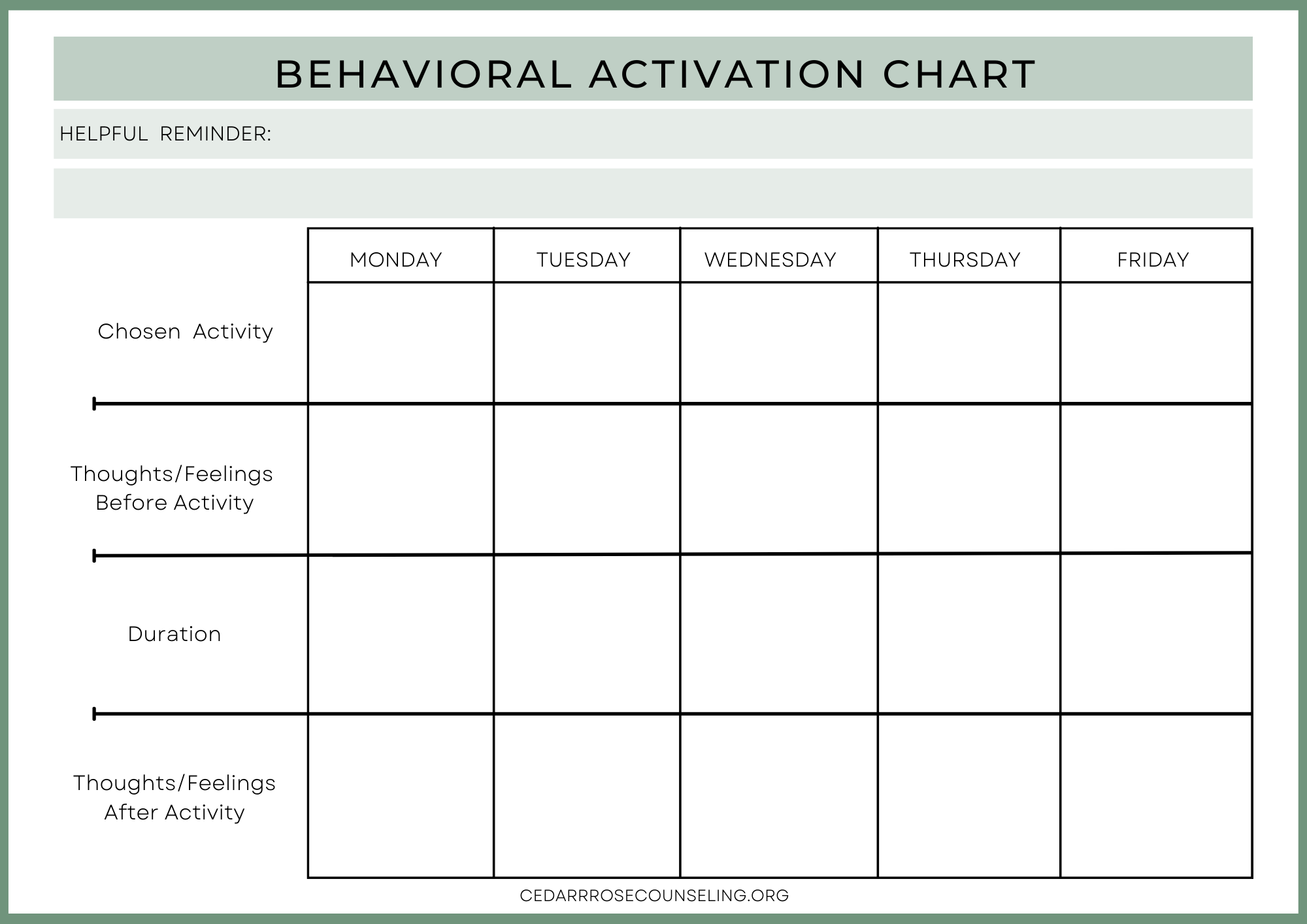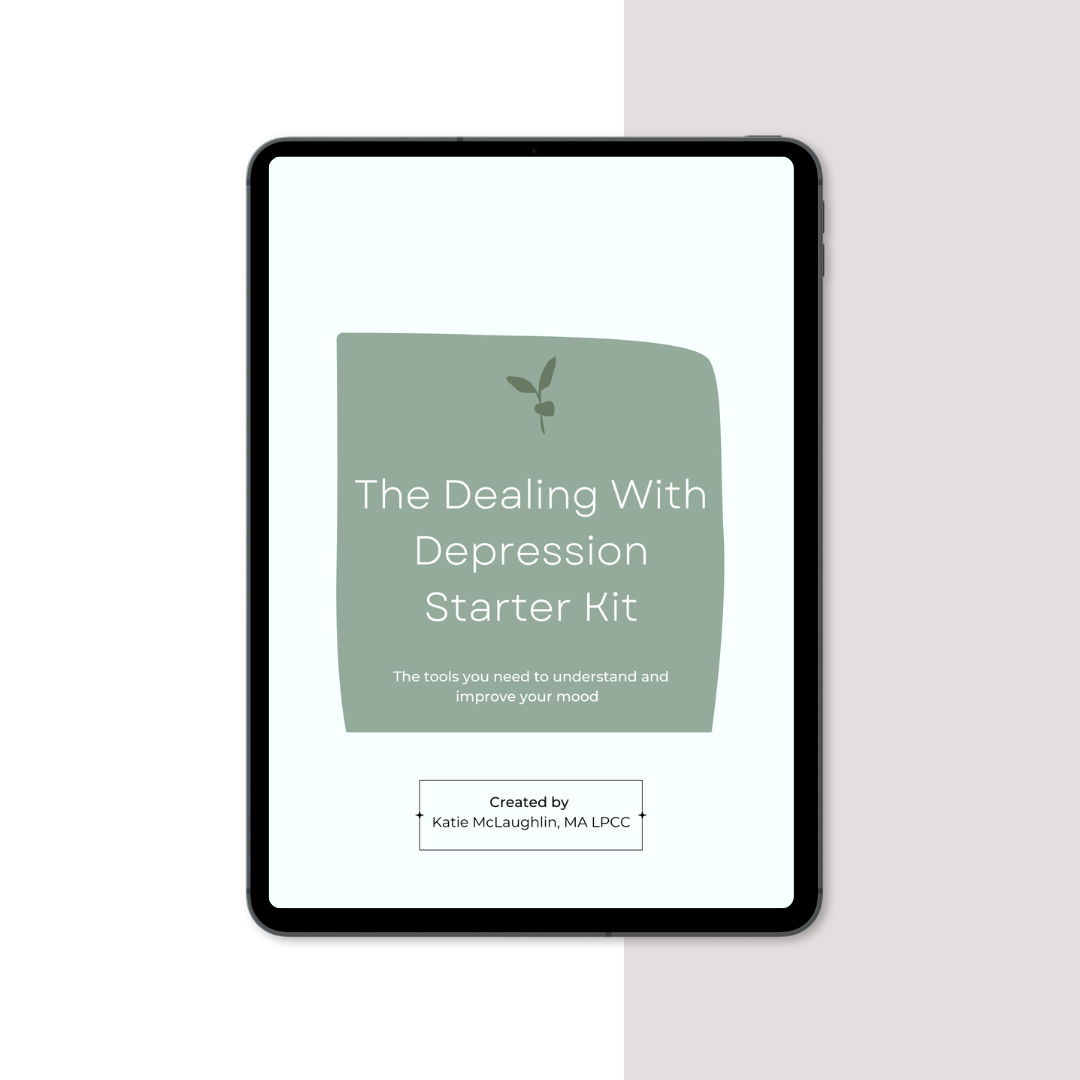Coping Skills For Depression
As we move into the cooler and darker months, it is common for our daily routines and experiences to change with the season. Unfortunately, this often means we get less natural sunlight, we stay in more often and our mood has a downward shift.
While seasonal depression is common, I’d like to do my part in preparing you with simple and effective strategies so you don’t feel like you’re drowning throughout this challenging time of year.
How Do I Know If I Have Depression?
Generally speaking, when we are talking about clinical depression, there can be any mixture of the following experiences:
Depressed mood for the majority of the day and experienced nearly every day over a two week period. A depressed mood can be defined as sadness, emptiness, hopelessness and even irritability.
A loss of interest or enjoyment in activities which were previously pleasurable.
Any significant change in weight or appetite in a one month period
Difficulty sleeping or sleeping much more than usual
Increased physical agitation or a large decrease in physical movement. This can often be seen as moving slower than usual, being more sedentary or feeling weighed down.
Fatigue or a loss of energy experienced daily
Feelings of worthlessness, guilt or hopelessness
Difficulty with concentrating, thinking or making decisions
Recurrent thoughts of death or suicidal ideation. Suicidal ideation can occur without having a specific plan to harm oneself, or it can occur with a specific plan to harm oneself, and maybe an attempt of harming oneself.
If you find yourself checking yes to any, or multiple, of these experiences, keep reading to learn how best to care for your mental health. Even if you haven’t checked these, I encourage you to stick with me here, as the following 3 strategies are simple and proven to be beneficial for maintaining mental health and improving stress management.
How To Stave Off Seasonal Depression
Stick With Your Regular Routine
As difficult as this can be, it really is best for our body and our mind to continue with our regular daily routine as best as we can. Routine helps us to build motivation and create momentum in our life. This means that we can continue to feel as though we have the energy we need to get through our day. If you have ever experienced depression to any degree, then you know what that lack of motivation and energy can feel like. One proven technique to help you stick with a beneficial routine is something called Behavioral Activation. Behavioral Activation is a Cognitive Behavioral Therapy technique which acknowledges the large impact our behaviors and activities (or lack thereof) have on our thoughts and emotions.
Below is an example of a Behavioral Activation Chart to help you organize activities which benefit your mood.
In order to utilize this chart, check out this video for a step-by-step process of how to implement Behavioral Activation.
2. Practice Gratitude
You will get 7 Gratitude Journal Prompts when you download my free Mental Health Starter Kit, or you can purchase my Gratitude Bundle.
Not only does gratitude intentionally bring our focus on what is good and pleasant in our life, but this intentional practice helps our brain to more easily seek out and find good things in the future. Practicing gratitude on a regular basis fights our innate negativity bias while creating brand new neural pathways. If you have been wondering how to start rewiring your brain, gratitude is a great place to begin. When we intentionally focus on what we are thankful for, new neural pathways are created. The more we practice gratitude, the stronger these new pathways become therefore helping us to more easily find the good in our lives.
Seeing as Depression often makes us focus on the negative, it’s easy to see how the benefits of practicing gratitude could really come in handy if we are feeling down.
3. Move Your Body
Not only does moving your body decrease stress by working out all that cortisol built up from the day (or week) but it also churns out a powerful neurochemical called Brain-Derived Neurotropic Factor (BDNF). Without getting too sciencey here, BDNF allows us to think positive thoughts more easily. It does this by increasing our brain’s ability to create brand new neural pathways and neural connections. New neural pathways equals brand new thoughts and the ability to see different perspectives (A.K.A Rewiring The Brain).
The ability to see new and different perspectives is a pivotal skill to build when we are battling depression because depression has a way of keeping our thoughts on the not-so-helpful.
Which strategies are you going to try this week? Let me know down in the comments!
In the coming months, Cedar Rose will be launching a Dealing With Depression Starter Kit.
This kit is chock-full of handouts and worksheets geared towards helping you understand and manage your mood. Sign up for the Cedar Rose Newsletter today to get notified of when this product will be available.
Take good care,
Katie





